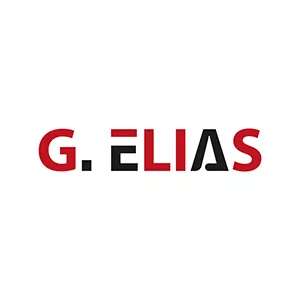- within Media, Telecoms, IT and Entertainment topic(s)
- in United States
- with readers working within the Law Firm industries
- within Media, Telecoms, IT and Entertainment topic(s)
- in United States
- within Insolvency/Bankruptcy/Re-Structuring, Finance and Banking, Litigation and Mediation & Arbitration topic(s)
- with readers working within the Law Firm industries
Introduction
On November 22, 2024, the Supreme Court of Nigeria delivered a landmark judgment in Suit No. SC/1/2008, between the Attorney-General of Lagos State & Ors and the Attorney-General of the Federation & Ors, which has significant implications for the regulation of lottery and gaming in Nigeria. The Court, in a unanimous decision by a seven-member panel, declared the National Lottery Act of 2005 (the "NLA") unenforceable in all states, except the Federal Capital Territory (FCT). The judgment reaffirms the authority of State Governments to regulate lotteries and gaming activities within their jurisdictions. This also marks a significant shift in the legal framework governing lottery operations for gaming businesses in Nigeria.
The case stemmed from a legal challenge initiated by the Lagos State Government in 2008, questioning whether the regulation of lottery and gaming businesses fall under the jurisdiction of the National Assembly or the state Houses of Assembly. The Attorney General of Lagos State argued that the National Assembly had overstepped its constitutional authority by legislating on lottery and games of chance, areas they contended should fall within the exclusive jurisdiction of state Houses of Assembly.
The judgment states that the NLA is no longer enforceable in all states, except the FCT. This decision is based on the understanding that the National Assembly has the constitutional authority to legislate only for the FCT, while individual states have the power to regulate matters within their own jurisdiction.
From a legal perspective, this means that state lottery laws will only apply within the jurisdictions where game offerings are being operated. It is also important to note that not all states in Nigeria currently have specific lottery laws. The Supreme Court's judgment has reinstated the state's authority to create and enforce its lottery regulations.
State of Affairs before the Supreme Court Judgment
Prior to the judgment, the NLA provided a centralized approach to managing lotteries and gaming with the National Lottery Regulatory Commission (the "NLRC") providing various categories of licensing and permit categories for gaming in Nigeria. These categories are: (a) lottery licence; (b) sports betting permit; (c) interactive/mobile lottery; (d) promotional lottery; (e) casino gaming permit; and (f) remote/offshore operator permit. The NLRC also had requirements for the types of licenses stated above and companies/individuals who fell into these categories were only required to obtain the applicable licenses to operate in all states of the federation. However, states continued to insist that gaming operators must obtain state-issued licences whether or not such entity had obtained a licence from the NLRC. This led to a situation where gaming operators would procure both state and federal gaming licences to operate without regulatory concerns. This recent decision of the Supreme Court changes that.
A Quick Note on the State of Gaming Legislation at the State Level in Nigeria
A few states in Nigeria have enacted laws to regulate lotteries and games of chance, ensuring that the operations within their borders are properly managed and compliant with state-level regulations. These states include Lagos, Rivers, Kano, Ogun, Oyo, Delta, Enugu, Ekiti, Abia, and Imo. With this decision, we see a path to the establishment of robust regulatory mechanisms especially in states where gaming frameworks do not currently exist as the erstwhile legal uncertainty has been clarified.
Conclusion
The Supreme Court's November 2024 decision reinstates the authority of Nigerian states to regulate lottery and gaming activities within their jurisdictions. Consequently, businesses can now operate with more certainty as to the regime applicable to their gaming operations. We should note that some states have issued guidelines on remote gaming activities which will enable businesses that are set up locally elsewhere or offshore to target residents within the state. Such framework might satisfy the needs of businesses looking to operate in a regulated environment nationally.
The content of this article is intended to provide a general guide to the subject matter. Specialist advice should be sought about your specific circumstances.




